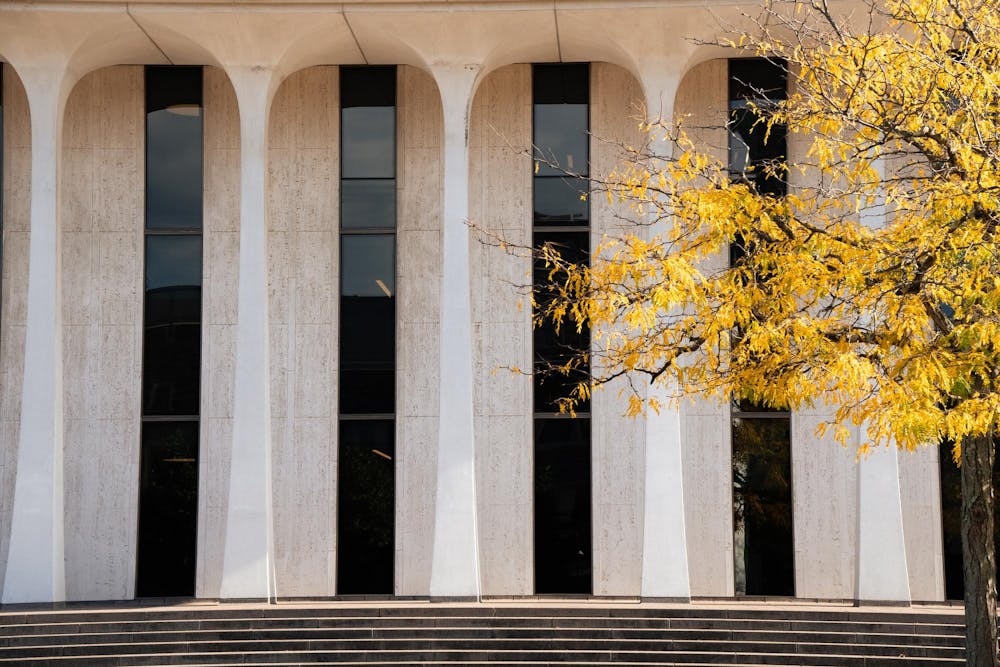In May last year, I was elected to the Undergraduate Student Government (USG) Senate as a U-Councilor. I was brimming with enthusiasm. The semesterly retreat, a day-long event laying out policy and programming goals, intensified my optimism. But my enthusiasm was soon dampened as I took on an actual project: I found that I lacked the skills to achieve said goals within a system that breeds stagnation.
As a U-Councilor chairing the International Student Working group last semester, I was focused on addressing the federal tax on international students. It made sense to go to the Office of Financial Aid, but when other members talked to the Davis International Center, they said we actually needed to talk to the Office of Finance and Treasury (OFT) and deal with them. The Council of the Princeton University Community also referred us to OFT. Talking with OFT then revealed that any change would really have to go through the Board of Trustees, and USG’s biggest hope was some Young Alumni Trustee who resonated with the issue and could bring the issue up to the board.
You could imagine that a wild goose chase of this kind would not only discourage a new class senator but also derail their progress as they struggle to navigate this circuitous administrative system.
This is where I found myself: grappling with procedural hurdles and struggling to advance the issues closest to students’ hearts. And this situation certainly contributes to student perceptions of USG as ineffective. For student representatives to make the change we can through the systems we have, we need a more onboarding process that prepares us to navigate these byzantine processes.
Policy advocacy within USG demands an understanding of the intricacies of University structures, clear proposal writing, and strategic coordination. USG’s introductory retreat currently seeks to outline the policy goals of the upcoming term and bring the government-wide initiatives onto the same page — a worthy goal. But a new student leader attending this can find themselves a little lost.
Without training about the University’s systems, new members face a steep learning curve. Navigating Princeton’s highly bureaucratic administrative landscape — identifying decision-makers, securing meeting times, and drafting proposals — requires extensive training.
Moreover, the transience of USG leadership poses an institutional memory gap that has been recognized by the current Kho-Swamidurai administration. As they noted in an interview with the ‘Prince,’ USG presidents serve one-year terms while administrators remain for decades, meaning students risk reinventing the wheel each cycle as knowledge falls through the cracks of transition.
Arming new members with knowledge of history and instruction of procedure is key. More attention to representative-elects, alongside the effective policy of documenting all past activities and meetings, would allow close bonds between those leaving and those entering, preserving knowledge necessary for continued work.

There are some ways that the University administration and USG are trying to address this issue presently. ODUS’s Student Engagement team, for example, coordinates major campus initiatives, working closely with and mentoring student leaders. And informal mentorships between old and new members of USG exist. However, a more structural and comprehensive model to train new USG members remains necessary.
The semesterly retreat that USG does is a perfect opportunity to implement some of these proposed changes. The retreat should blend workshops, keynote speakers, and real-world simulations to build policy skills before members take on the work of the semester. These workshops should cover governance structures, legislative drafting, and negotiation tactics, ensuring that student governors have a sufficient understanding of the system they’re working within.
Princeton’s peer institutions’ student governments offer lessons for how USG can improve training. Some student governments establish dedicated committees to archive proceedings, conduct exit interviews, and maintain searchable archives. Bryn Mawr’s SGA Institutional Memory Committee preserves bylaws, meeting minutes, and oral histories to benefit future members. Rutgers University’s “Student Org Essentials” workshop pairs training with a living online repository of guides, templates, and FAQs, ensuring continuity beyond individual tenures.
Instead of throwing new members in the deep end, USG should provide policy training workshops, a series of interactive sessions each semester covering university bureaucracy, proposal drafting, and advocacy simulations. They should also initiate a formalized system of mentorship pairings, matching every new USG candidate-elect with a current member who can offer personalized support and institutional tips. Additionally, maintaining an online hub with past proposals, case studies, meeting protocols, and contact directories would preserve key institutional knowledge and help guide future generations of USG members.

Implementing this framework will enable new members to contribute substantially from day one. By giving new members better training, USG can tap a broader pool of passionate students who may lack prior advocacy experience. Ultimately, well-trained representatives will secure more wins for undergraduates, from academic policy reforms to improved campus services.
Investing in robust orientation and training for incoming USG members isn’t merely helpful — it’s essential. Structured workshops, strong mentorship, and curated knowledge repositories will transform enthusiasm into effective advocacy, empowering USG to fulfill its mission as the undergraduate voice at Princeton.
Luqmaan Bamba is an Opinion staff writer and an Electrical and Computer Engineering major from Ghana and New York. He serves as a U-Councilor in USG. He can be reached at luqmaanbamba[at]princeton.edu.








